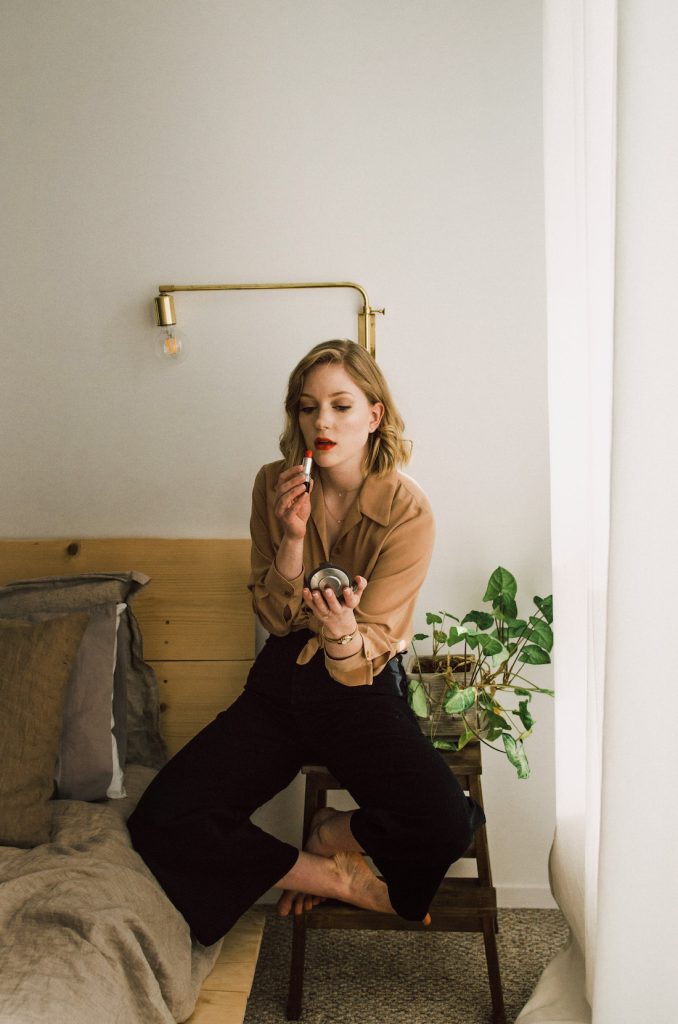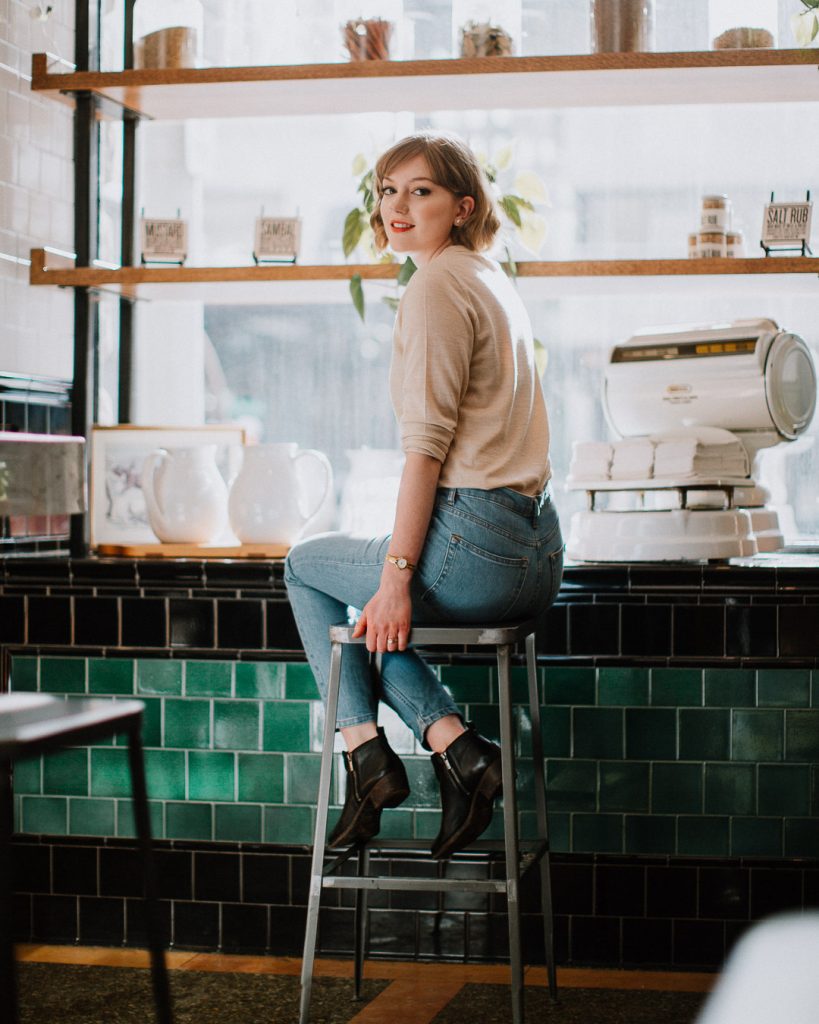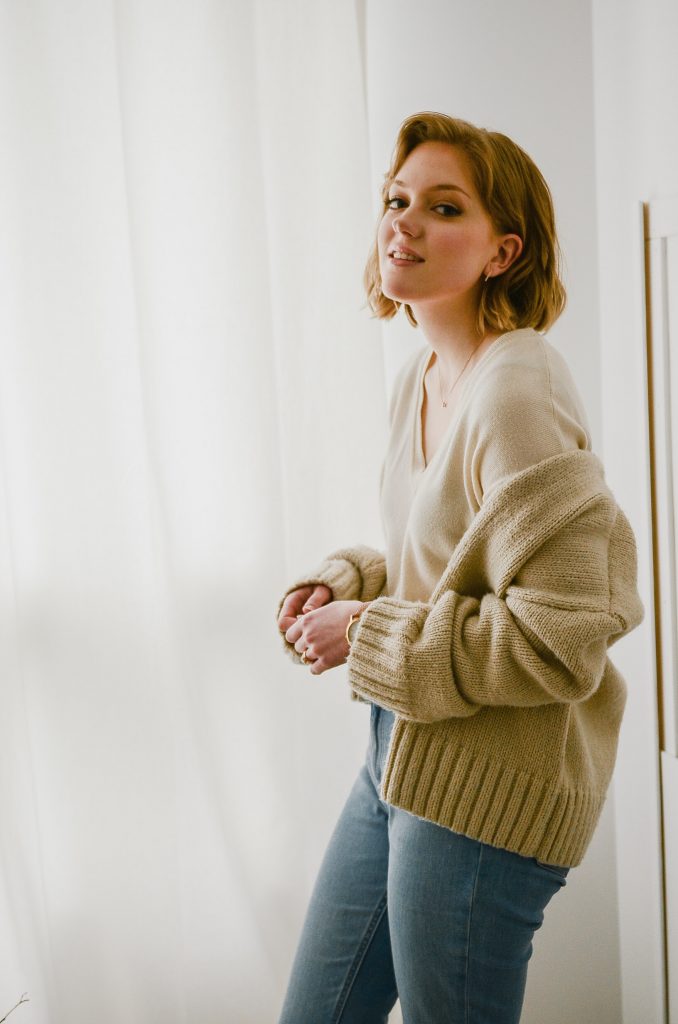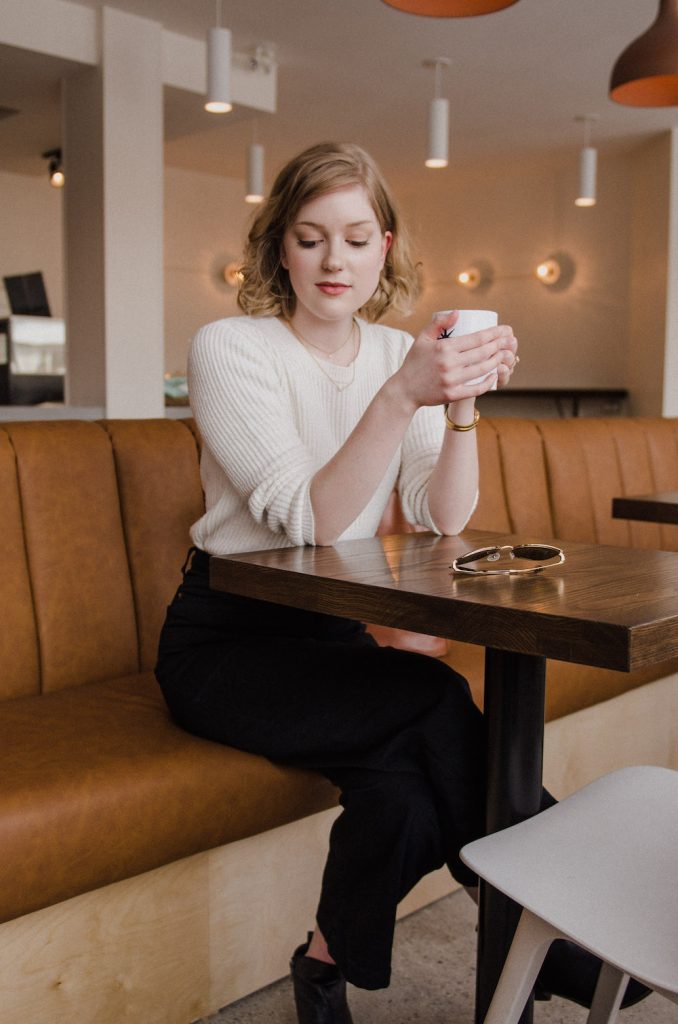Slow Fashion Icon: Aléna Tran
Welcome to our Slow Fashion Icon series! In this series we interview slow fashion advocates from all over the world, all impacting people in their own unique ways. The series of profiles is aiming to show how to implement slow fashion ideals in your everyday life, and how the movement is accessible to people with different lifestyles.
Our first Slow Fashion Icon, Aléna Tran is a part time librarian and a part time writer from Canada, who came across slow fashion much like everyone else who became aware of the movement; through the True Cost documentary. She writes about slow fashion on her blog, aiming to influence regular people to make more conscious choices with the garments they buy. Aléna loves to explore ethical local fashion brands that she has discovered, partake in curating a capsule wardrobe and encourage people to cut down on wasteful spending on fast fashion. Ally sees the journey to becoming a conscious consumer a gradual process of facing the harsh realities of the fashion industry and making a choice to support ethical production practices.
How did you get into slow fashion; what made you wake up to the reality of the situation?
Like many of my peers, I was blissfully unaware of the pitfalls of the fashion industry until I sat down one night and watched The True Cost documentary on Netflix. Realizing that there are real people behind my clothes — that they have dreams and aspirations and challenges and heartbreak just like me — changed everything. Seeing the inhumane conditions they are forced to work in just to survive (and the fact that the fast-fashion brands we know and love are perfectly aware of this, and continue to allow such treatment) sickened me. Like the William Wilberforce quote, I knew I had the choice to look the other way, but I could never again say that I didn’t know. And as a Christian, I have a deep respect for the value and worth of every human being, and desire to see no one under oppression. So I chose to look the injustice in the face and stop buying from any brand using exploitation to make a profit. My shopping freedom is nowhere near as valuable as the freedom of the women sewing my garments.
I remember not long before watching the film that I had actually begun pondering the manufacturing process of clothes, wondering, “Are my clothes made by machines? Surely in this day and age they’re not all hand-sewn.” I knew so little, it’s almost laughable. But this information isn’t commonplace; so few of us talk about the production of our clothes. The quiet presence behind our garments is nameless, faceless, story-less. We see a price tag and a label, and little more.
Realizing that if I had no idea about any of this, there must be myriad others like me. So I decided to turn my then-meagre social influence into a force for positive change. To inspire, educate, and make ethical style less obscure. I still wish there was more I could do to directly impact the garment workers I have a heart for, but the fact that people with privilege are inspired to become more responsible consumers is a notable start.
How in your personal life do you implement sustainable ideals?
First and foremost, I pay attention to who made my clothes. I want to know where they were made, what the brand’s relationship with the factory is like, what their standards are, how the employees are treated. Environmental impact is also important to me, and I love supporting brands that are making more eco-friendly designs. But I think most of us have an unspoken hierarchy of priorities when it comes to our ethics, and for me, humans will always come first. I don’t want to support a brand that makes eco-friendly products but treats their employees terribly. If both the garment workers are treated well and the materials are sustainable, that’s an incredible brand that I want to stand behind.
The quiet presence behind our garments is nameless, faceless, story-less. We see a price tag and a label, and little more
Have you seen a change in the way people behave regarding sustainability and how?
Yes! Even in the short year that I’ve been a part of the slow fashion movement, I’ve seen so many people develop a hunger to learn about how they can shop more consciously. I’m quite thrilled that minimalism, and especially capsule wardrobes, have been huge trends lately. They’ve helped people move away from the more/cheaper mindset to the mindset of fewer/better: that is, aiming to consume less, but what was is consumed is of higher quality and meant to last. That attitude towards materialism goes hand in hand with the values of sustainability and responsible style. Consuming less means creating less waste, and opting for items of a higher quality means it takes longer for items to end up in the landfill. It’s not a perfect process, but it’s slowing the cycle of consumption. Which is more than we can say for the general attitude of the past decade.
How is the slow fashion scene like in Canada?
The slow fashion scene is still in its infancy, I believe, but it’s growing. I’m discovering new Canadian slow fashion brands every month. That being said, true larger-scale ethical fashion is still difficult to find in Canada. Yes, there are quite a few small independent designers and their teams sewing their garments by hand, which is wonderful. But it is much harder to find established Canadian brands that produce their garments in developing countries in responsible ways, which is just as needed. Artisans in developing countries need to be respected for their craft, be paid fair wages so they can support their families, work in clean and safe environments, and ideally be presented with opportunities for education and other workplace benefits. Nisolo is a wonderful example of a brand doing just that, but they are an American company. I’d like to see more brands like that here in Canada.
What do you see as the biggest challenges facing slow fashion?
Where to begin! There are so many barriers to the movement at this point in time. Perhaps the biggest barrier is simply the fact that the fashion industry is geared towards the fast-fashion model, and that’s how the majority of people want to shop. There is so much corruption permeating each layer of the fashion industry, that it’s a challenge for even the most well-meaning brand to be 100% ethical and sustainable all the way down its supply chain. Not impossible, perhaps, but quite difficult.
Another barrier is simply the mindset of most consumers. Many individuals don’t want to buy slow fashion garments because they’re often significantly more expensive than what they could grab from H&M or Zara; we’ve been almost brainwashed by big exploitative brands to believe that clothing can, and should, cost very little. In reality, clothing used to be an expensive commodity, before brands discovered that they could take advantage of cheap overseas production. If we can shift our attitude towards clothing to treat it as a valuable commodity that requires budgeting and thoughtful selection — the way people used to approach clothing until the late 1900s — then slow fashion could be more successful, and the environment would feel the benefits.
Another significant and hot topic in the slow fashion industry today is the issue of inclusive sizing. Not a lot of ethical fashion brands offer very inclusive sizing; trying to keep costs lower, since ethical fashion is already expensive, is often cited as an obstacle to this.
How do you see things changing in the future?
I don’t know if I can say for certain how things will change, but I can tell you what I sincerely hope. I hope that as this movement gains traction, emerging ethical brands feel empowered to expand and make a bigger impact. That big fast-fashion brands lose enough business from consumers that they must begin to make real, observable change. That caring about the human and environmental impact of our clothes wouldn’t be niche, but commonplace. And that the general mindset would shift in such a way that shopping ethically is widespread and accessible. May all this be a reasonable, and not outlandish, hope.





